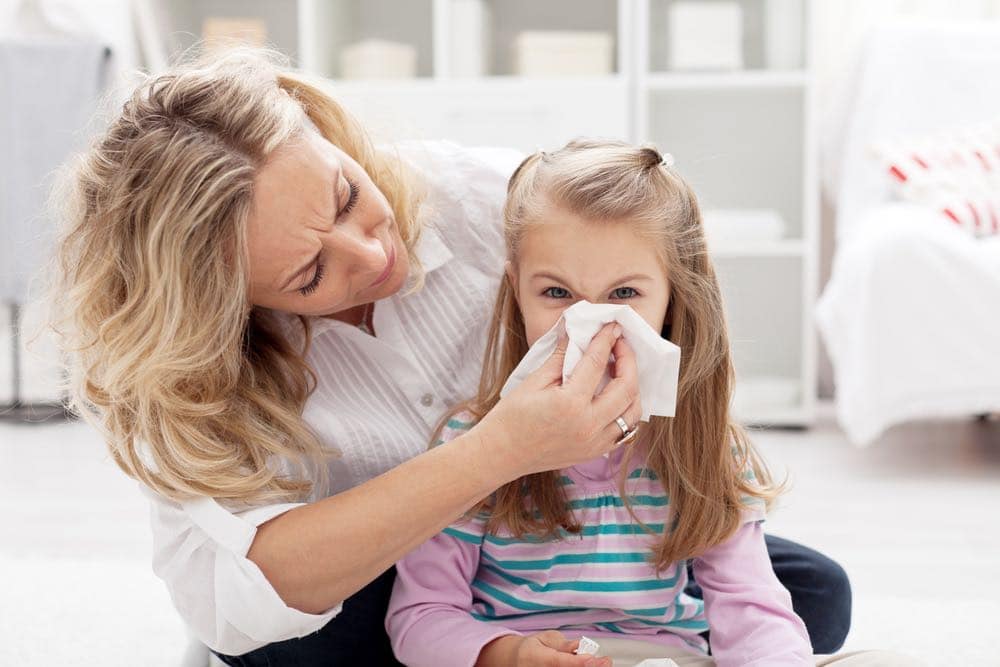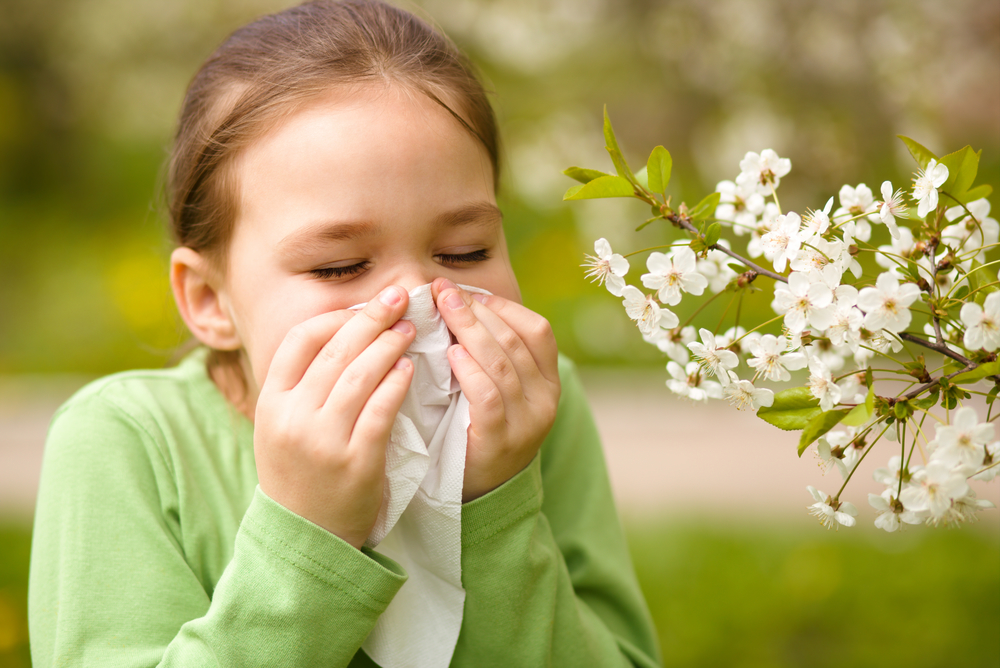Seasonal allergies… it’s enough to get you sniffing, itching, sneezing and miserable!
Whilst many are rejoicing about the warmer weather, for some families spring can be a bit of a nightmare because it’s also allergy season. If your child is suffering from seasonal allergies, here are some top tips.
What is an allergic reaction?
An allergic reaction is our immune system reacting to something that would normally be quite harmless. Reactions can present in different ways including a rash or hives on the skin, tingling of the lips, stomach pain or diarrhoea, facial swelling or in more severe cases an allergy can cause anaphylaxis and breathing difficulties.
Allergic reactions in children are quite common, the most common causes include nuts, eggs, cow’s milk, wheat, soy, fish and shellfish. But a reaction can also be triggered by environmental exposure to allergens such as dust, pollen and proteins.

How can I tell the difference between a viral rash and an allergic reaction?
If your child breaks out in a rash, firstly check their temperature. With a viral rash there will most likely also be a fever present. The other major difference between a viral rash and an allergic reaction is allergy based rashes blanch.
Push your finger down into a red part of the rash and if it leaves a white print where your finger was pressing, that means blanching is present and it isn’t a viral rash. With any rash it is wise to consult with your GP especially if the rash is confined to or started in the neck area. They can also put you onto the right treatment for your child. Treatment for seasonal allergies is simple and can be purchased over the counter however if you’re not sure it’s definitely better to seek the advice of your family doctor.

What are the symptoms of anaphylaxis?
Anaphylaxis is a severe allergy which means when affected, breathing can become difficult. The following symptoms may indicate your child is suffering from anaphylaxis:
- Difficulty breathing or noisy breathing
- Wheezing or persistent coughing
- Dizziness or fainting
- Swelling of the tongue
- Becoming pale or floppy
- Swelling or tightness in the throat
If your child presents any of these symptoms call 000 for emergency help.
I’m not allergic to anything? How did my child develop an allergy?
Allergies tend to run in families but they may present differently from family member to family member. One person might react to an allergen while nobody else has experienced a reaction. Research is being done to find out why allergies are more prevalent in children today.
Finding out exactly what your child is allergic to may also take time. If the allergy is a moderate one, it is likely that it can be managed with medication and soothing creams until the reaction subsides. But if the allergy is becoming persistent, it’s time to speak to your doctor to seek out testing and to formulate an allergy plan. This would likely be undertaken at your local Allergy and Immunology Clinic at the Children’s Hospital.

How can I avoid an allergic reaction?
Take note of where you were and what your child may have eaten or been exposed to when the reaction occurred. Did you change any of the household cleaning products? Did they eat something different? Is it possible they brushed up against something outside? The more you can identify how it happened, the more likely you can try to avoid a recurring reaction.
Although it can be difficult because in some cases we are clueless as to what it could have been that triggered the reaction. To be on the safe side, you might like to carry a small dose of antihistamines with you or keep some in the car in case it happens while you’re out of the house.
Medical disclaimer: Tips provided need to be considered in conjunction with medical advice. For immediate concerns, please contact HealthDirect (Australia wide) ph 1800 022 222 to talk to a registered nurse 24hrs a day, and in emergencies call 000.
Got more questions about seasonal allergies and allergic reactions? Click here.
Want more information on hay fever in kids? Check out this fact sheet from Kids Health Information.














